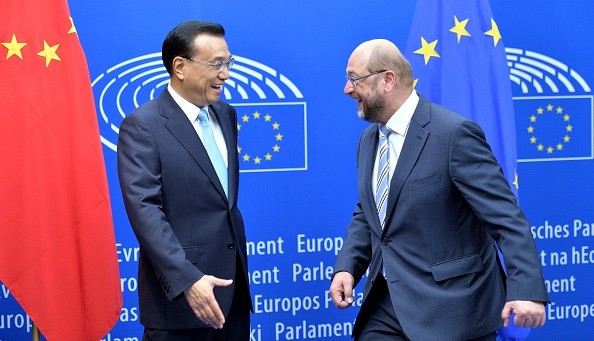The plans of Beijing in creating national champions in 10 high-tech manufacturing sectors by 2025 have come under fire from the EU Chamber of Commerce, as European businesses fear that Chinese producers will swamp the whole industry.
The EU Chamber of Commerce released a 70-page critique on the China Manufacturing 2025, the country's industrial policy. The report was timed to coincide with the National People's Congress this year.
The CM2025 was modeled on Germany's "Industry 4.0" program of smart manufacturing. The plan identified 10 sectors for China to dominate locally so that it would be competitive globally. It specified precise targets for domestic and foreign market share, which awoke concerns in Europe about state companies swamping lucrative sectors.
The body that represents European businesses in China said: "The broad set of policy tools that are being employed to facilitate CM2025's development are highly problematic. Foreign carmakers with electric models were being pressed to turn over their battery technology to Chinese partners in exchange for being able to produce and sell in China."
"European business is facing intense pressure to turn over advanced technology in exchange for near-term market access. Current measures on subsidizing local producers of battery-powered cars are possibly in violation of China's commitments to the World Trade Organization," the EU Chamber stated.
Given the length of the process of the WTO resolution, foreign business fear that it may not be an option.
China's government appeared to react to this criticism at the opening of the NPC this year. It stated that when it comes to licensing deals, standards setting, and government procurement, foreign markets would be treated the same as domestic groups. Foreign companies will also enjoy the same preferential policies under the "Made in China 2025" initiative.
"The report was intended to pre-empt rather than champion trade barriers.We are saying this not to encourage protection but with an eye to the rise of populism across Europe," said the president of the EU chamber, Jorg Wuttke.



























